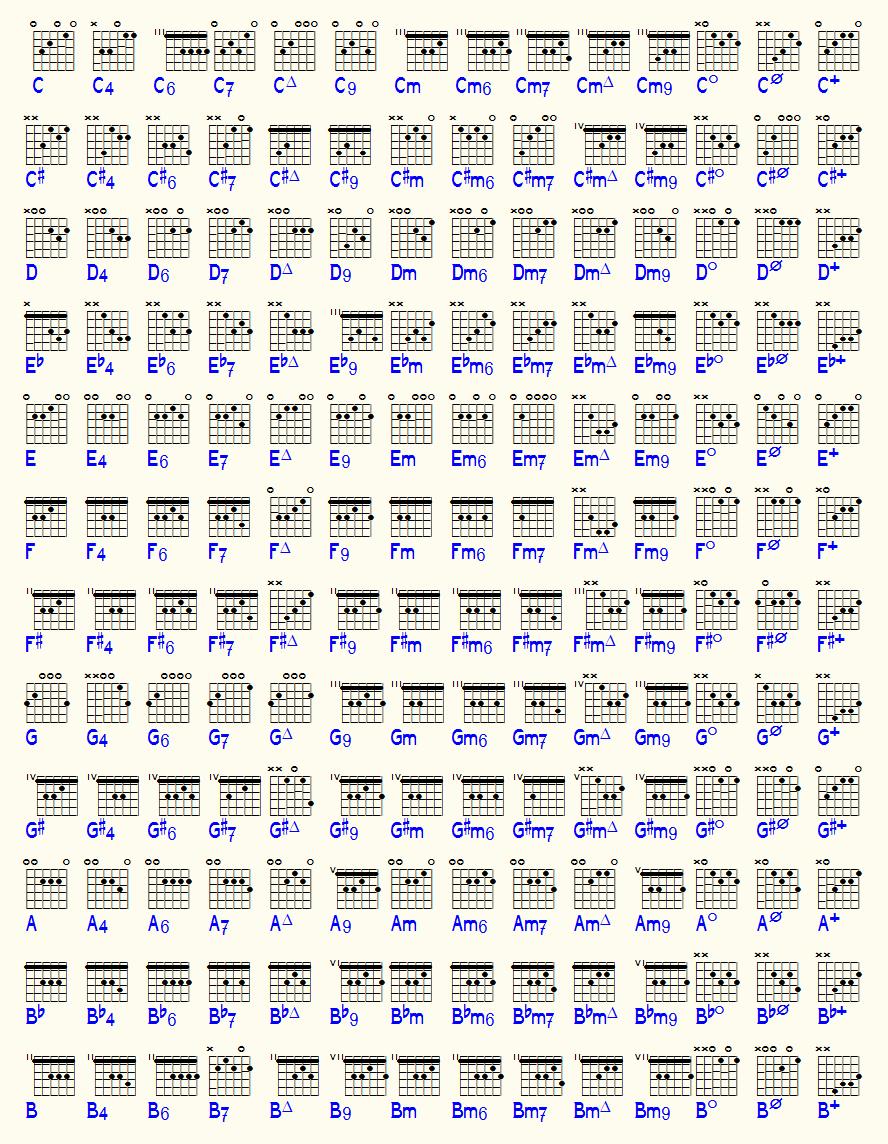Guitar chords
Classical music written for guitar is usually written with a treble clef and notated an octave higher than it sounds.
A few guitar specific notation items:
- fingering for the right hand is written like:
p pollice thumb i indice index finger m dito medio middle finger a annulare third finger
- finger placement for the left hand is 1=index finger 2=middle finger 3=third finger 4=pinky. An open string may get fingering 0
- a barré (index finger crossing all six strings) is written as C + fret number in Roman ciphers like CIV for fourth fret.
- tremolo
- chord symbols
- chord diagrams
Guitar chord diagrams
Much modern music uses chord symbols (lead sheets) to be used with a guitar.
For each of the twelve possible notes you'll find:
major, 4 sus-4, 6 add6, 7 seventh, Δ major seventh, 9 add9,
m minor, m6 minor-add6, m7 minor seventh, mΔ minor-major seventh, m9 minor-add9
o diminished, ø half-diminished, + augmented
Many chords can be played with (very) different fingerings.
Sometimes a tune uses chords with difficult fingering. A workaround may be using a capodastro and transposing the song to a key with 'easy' chords. Easy keys for guitar are typically for a major scale: E A, D, G and C and minor Em Am and Dm.
So, if you have a song in F#m which uses F#m, Bm, C#7 (all barré chords), set the capo on the second fret and transpose the tune two semitones down and you'll end up playing in the guitar friendly key Em (Em, Am, B7).

